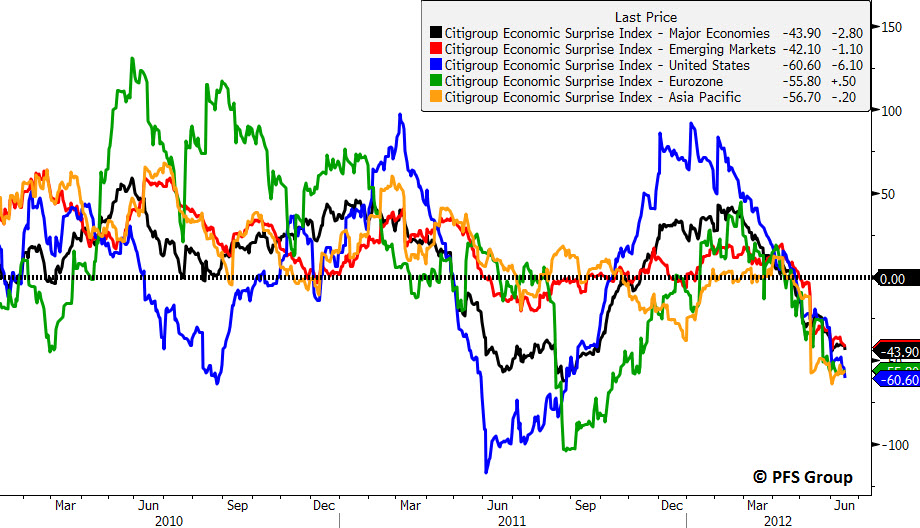Up until recently the U.S. was one of the few economies to show acceleration while the rest of the world was applying the breaks. Now, with job growth and manufacturing activity in the U.S. slowing markedly over the past two months, no economy appears to have escaped the slowdown. This is the type of backdrop in which we have seen global central bank coordination to jumpstart the global economy. Will central banks act? That is the big question, and given recent news releases from central bank talking heads it does look like various forms of easing are on the way; the question now is not if but when and how much?
A recent article in The Economist has an excellent article highlighting the state of economic affairs and a portion of that article is highlighted below:
“TO THE lifeboats!” That is the stark message bond markets are sending about the global economy. Investors are rushing to buy sovereign bonds in America, Germany and a dwindling number of other “safe” economies. When people are prepared to pay the German government for the privilege of holding its two-year paper, and are willing to lend America’s government funds for a decade for a nominal yield of less than 1.5%, they either expect years of stagnation and deflation or are terrified of imminent disaster. Whichever it is, something is very wrong with the world economy.
That something is a combination of faltering growth and a rising risk of financial catastrophe. Economies are weakening across the globe. The recessions in the euro zone’s periphery are deepening. Three consecutive months of feeble jobs figures suggest America’s recovery may be in trouble (see article). And the biggest emerging markets seem to have hit a wall. Brazil’s GDP is growing more slowly than Japan’s. India is a mess (see article). Even China’s slowdown is intensifying. A global recovery that falters so soon after the previous recession points towards widespread Japan-style stagnation.
As you can see below, we are truly seeing global economic deceleration and that is showing up in economic releases and global financial markets. Citigroup’s Economic Surprise Indexes measure the proportion of economic releases over the preceding three months that are beating or missing Bloomberg consensus expectations. As of now, every single global economic region is seeing its respective incoming economic data surprise to the downside.
The reduced expectations for global growth can also be seen when looking at global bond yields which have not only taken out their 2008 lows but their 2010 and 2011 levels due to investors reduced inflation and growth expectations.
With yet another relapse in global economic growth rates mirroring the 2010 and 2011 cycles, will global central bankers respond yet again? It certainly appears that way as we have now heard from the various central banks of the U.S., Europe, Canada, and England.









